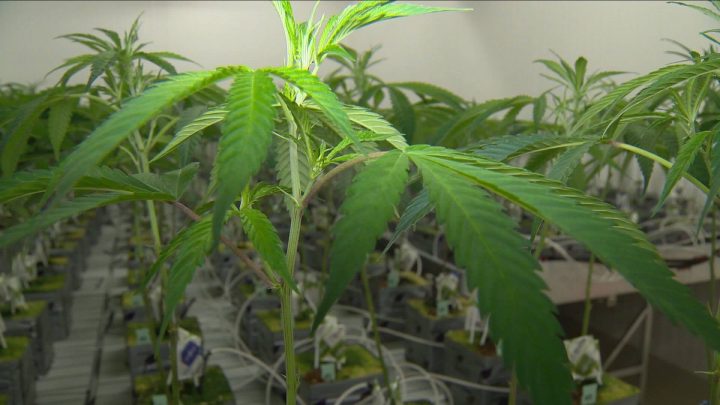B.C.’s legislation on pot is expected to be tabled in Victoria today, ahead of national legalization this summer.

Premier John Horgan says he doesn’t expect it will please everyone.
“There are going to be people who are going to hold fast to their traditional ways, and there are others that are going to rejoice in the fact that they can have certainty and quality of product and certainty of price.”
“And knowing that any excesses are going to go to programs that are going to help communities,” he said.
But he says it’s probably not the last we’ll see of it.
“There are going to be those who say it didn’t go far enough. There are going to be those who say it’s gone too far, and I think we’re going to have to amend and modify over time,” Horgan said.
Horgan says it’s certain this legislation will be complete before summer, while other bills will have to wait until the fall.
Richmond’s mayor says there are still a lot of questions
The mayor of Richmond says time is of the essence, and the province is too late when it comes to creating this framework.
Malcolm Brodie says he still has concerns at the city level for when pot becomes legal this summer.
“Time to be specific about what the provincial requirements are; we’re looking for everything from the methods of distribution, rules around distribution all the way to the share of the revenue that we can expect because we’re going to have a lot of extra costs,” he said.
“What location requirements are there going be for retail operations? What are the rules around the growing of marijuana on farm lands? We haven’t really had any direction on those kinds of questions.”
Just this week, Richmond city council set some new rules around smoking marijuana, cigarettes and vaping in public places and on city-owned land.
Confusion is on the horizon: pot activist
“I think there’s going to be many years of confusion and court cases and having to deal with all these issues before we really have a smooth functioning cannabis system.”
Local pot activist Dana Larsen says that’s because there are a lot of dispensaries operating in B.C., some without municipal business licenses.
“Transition for them to move into the legal system, if they’re going to, or how that all plays out I think is going to be slow and complicated and probably involve some court battles,” he said.
Larsen also anticipates court battles around limits against landlords prohibiting tenants growing cannabis at home and prohibition that municipalities might put in.
Vancouver dispensary doesn’t want to compete with black market
Andrea Dobbs, Co-founder of the Village Bloomery in Vancouver, says she’s open to the legislation and is now looking at the next year as a fresh beginning.
Dobbs says she hopes to see product availability as a staple because there are many B.C. craft artisan producers not included in federal legislation.
“It would be lovely to hear that that was a priority for them and that getting a diverse product offering into shops and potentially allowing some kind of a direct sales option, that would be encouraging.”
She says she wants to see a level playing field between the black and legal markets.
“I’d like to see what is currently the grey and or black market at least invited to participate so that… those of us who are in the legal stream don’t have to worry about all of our work being circumvented in B.C. with vendors who have products that are potentially superior to what we have to offer.”
Challenges for law enforcement
B.C. Police Association President Tom Stamatakis says during the pot legislation’s growing pains, public confidence will be the main priority.
Stamatakis is happy it’s being called a ‘work in progress,’ but in the meantime he says officers will be challenged with respect to their observations or evidence.
He says for example, when people are allowed to grow plants in their own homes.
“From an enforcement perspective, that’s gonna present a lot of challenges,” he said.
“On the one hand, you’re going to have a neighbour phoning the police to respond to another neighbour potentially growing more than four marijuana plants. The neighbour… whose home we’re attending is going to say ‘why are you here you should be doing something else with your time,’ and again it just created those kinds of conflicts.”
Stamatakis says another challenge will be measuring drug driving because there’s no specific tool to use.






Comments